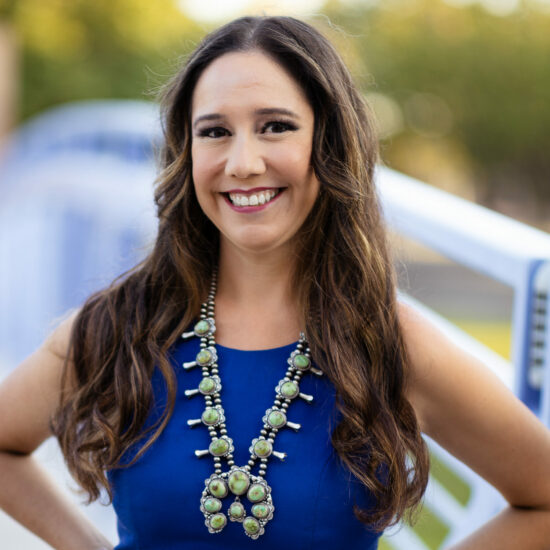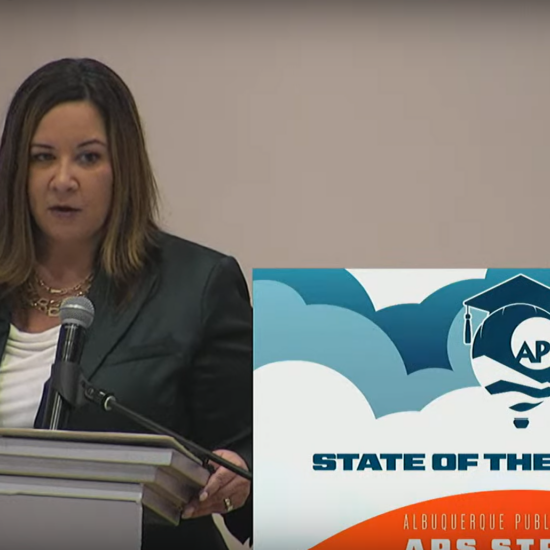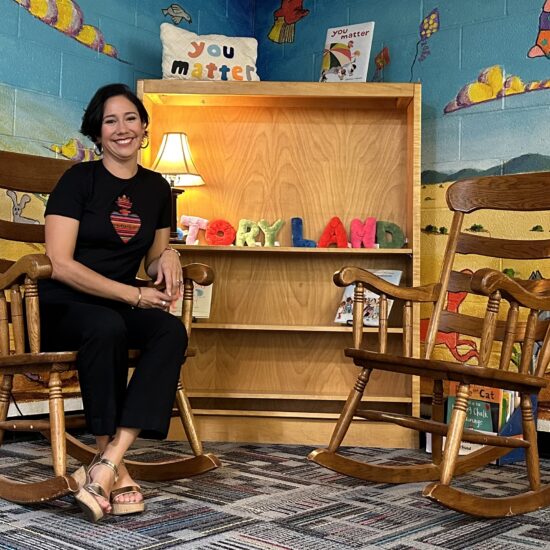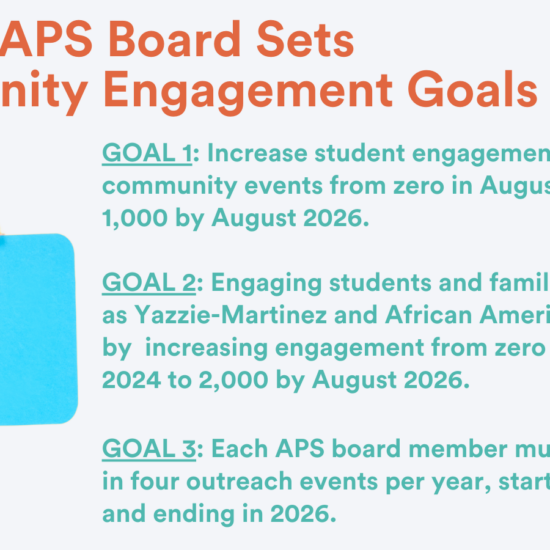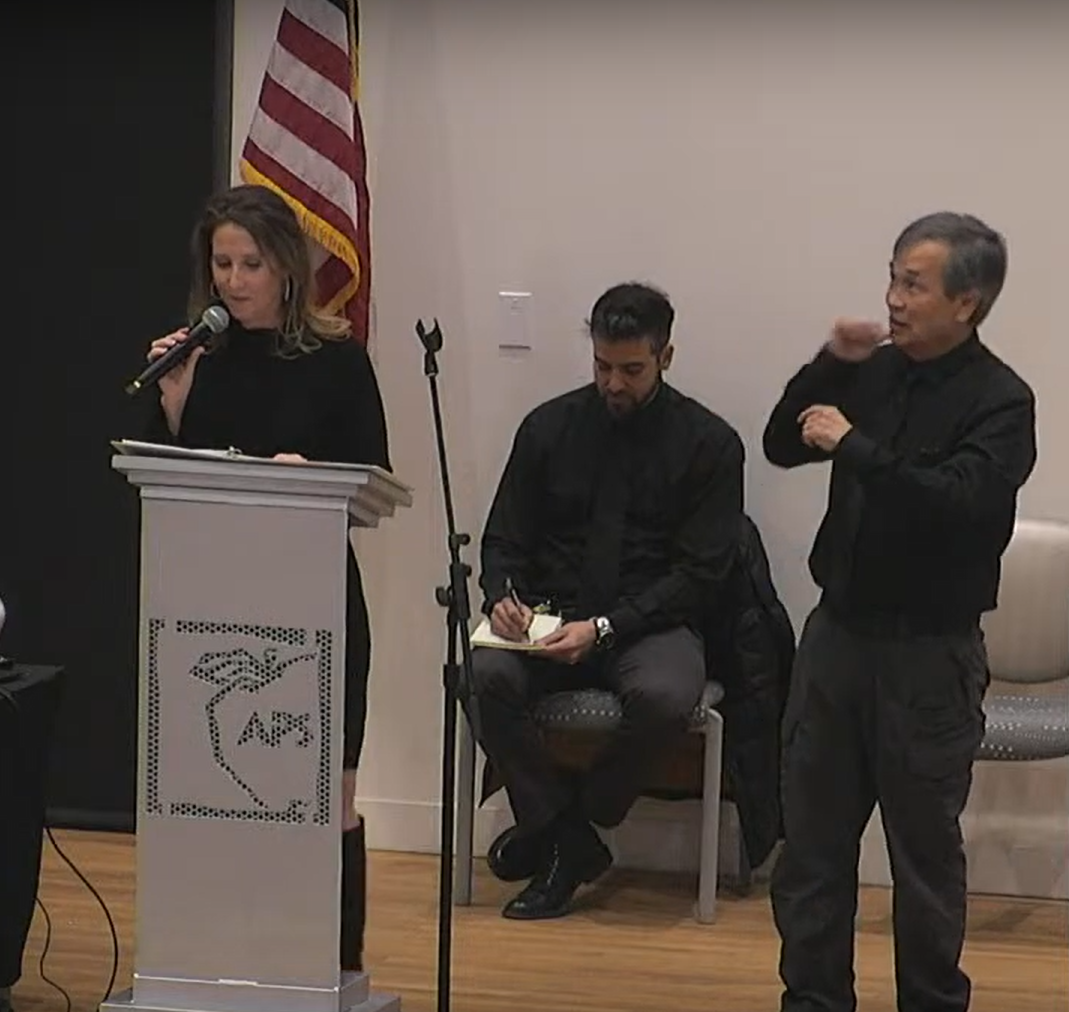
In a move toward transparent and community-inclusive financial planning, the Albuquerque Public Schools Board of Education held a budget hearing with the community to help them understand the budgeting process for the 2024-2025 fiscal year..
Last year, the APS Board of Education approved a $2.16 billion budget, $76 million more than the City of Albuquerque’s budget for the same year.
The hearing, led by Board Member Courtney Jackson of District 7, and co-host Josephina Dominguez of District 6, emphasized the district’s transition to a “Student Outcomes Focused Governance,” referred to by the board as the SOFG model. This model aims to ensure that every decision, from the boardroom to the classroom, prioritizes student outcomes.
Over the past year, APS has been laying the groundwork for what it expects to be a transformative journey, with the district aligning all its activities towards improving student outcomes. This includes not only the work and evaluation of the Superintendent but also the budgeting for the district and schools, as well as legislative agendas.
A significant portion of the hearing was dedicated to presenting and discussing the APS budget, which Chief Financial Officer Renee Apodaca and Budget Executive Director Rosalinda Montoya, dubbed the “budget queen,” detailed. The budget for the upcoming fiscal year is estimated at $1.9 billion, down from the current $2.2 billion, largely due to the expiration of federal COVID-19 relief funds.
Apodaca laid out four major points the district is considering when discussing their budget.
Budget Realities and Challenges
- ESSER Funds Expiration: The district is facing the expiration of $242 million in ESSER funds (Elementary and Secondary School Emergency Relief Fund), which were likely provided to mitigate the impact of the COVID-19 pandemic. The expiration of these funds means the district must adjust its budget to account for the loss of this significant financial support.
- Student Enrollment Decline: A decrease in student enrollment can lead to reduced funding from state and local sources, which is typically based on per-pupil allocations. This creates additional financial pressure.
- Inflation: Rising costs for goods, services, and salaries must be managed within the constraints of the budget, affecting purchasing power and operational efficiencies. In the 2025 state budget, the state requires a three percent pay raise for teachers.
- Restricted Funds: The budget includes funds that are restricted in their use, such as capital funds for building projects, federal money for specific programs, and funds allocated for transportation and buses. These restrictions limit flexibility in budget allocation.
Budget Planning Process
- The budget planning process is just beginning, Apodaca said, influenced by the outcomes of the recent legislative session, which includes an increase for all salaries. This process involves gathering input and planning based on known financial constraints and projections.
- Input and Planning: The district aims to gather input from various stakeholders to inform the budget planning process. This includes understanding the different types of funding and budgetary constraints.
- Budget Process for Schools: Apodaca explained the budget timeline, saying that budget templates are sent to each of the schools in March for principals to work on their individual budgets. Apodaca said this is a big test because there are 142 schools that will be submitting their financial asks and needs.
- Budget Process for the District’s Departments: Departments within the district, like Human Relations and the Budget Office also receive templates to plan their budgets. The compiled budgets from both schools and departments form the basis of the district’s budget planning, accounting for approximately 80 percent of the overall budget.
Budget Steering Committee
- The district has a budget steering committee composed of various community members and APS staff, not limited to the finance team, to review and make decisions on the budget. Apodaca said this committee considers input from different departments and schools, prioritizing based on the district’s overall needs and goals. The diverse expertise of the committee members ensures that decisions are informed by a broad range of perspectives, from educational programming to financial management.
In light of the declining enrollment and the challenges of inflation, Apodaca said APS’ budgeting process is an endeavor that seeks to balance various needs and priorities within the constraints of available resources.
Approximately 80 percent of the budget is allocated directly to schools, Apodaca said, with a significant portion covering salaries and benefits for teachers and educational assistants, underscoring the district’s commitment to direct instruction and student support.
The meeting featured an interactive budget trade-off game, inviting community members to engage in the budgeting process by making tough decisions on program funding. This exercise aimed to illuminate the complexities of budgeting and the importance of community input in prioritizing educational investments. The community was presented with fictional numbers, closely aligning with expectations from the district’s finance options. In particular, the community was tasked with deciding what programs paid for with COVID funds they would continue to fund and what part of the budget they would cut to continue these programs.
Despite the constructive nature of the hearing, community feedback highlighted a desire for more specific data and a deeper understanding of the effectiveness of district programs. Concerns were raised about the adequacy of state funding, with calls for advocacy at the state level to address funding shortfalls. Jackson said the district would provide more specific information about the budget during the next community hearing..
APS is asking the community to weigh in on this conversation in a survey, here.
The next community budget hearing is scheduled for Feb. 28 at Lyndon B. Johnson Middle School, 6811 Taylor Ranch Road NW in Albuquerque.



